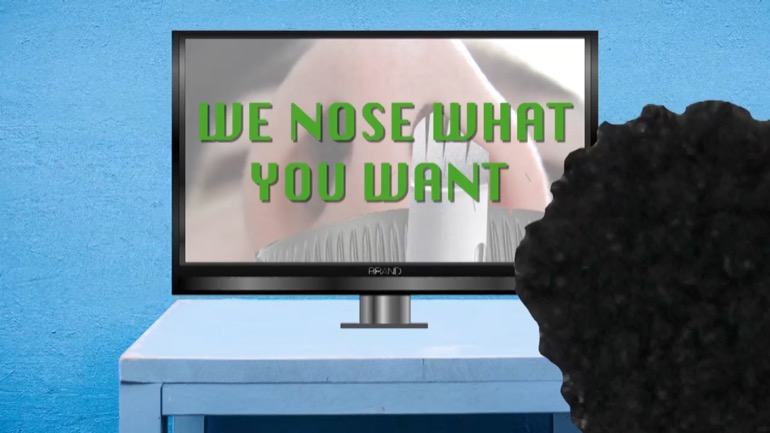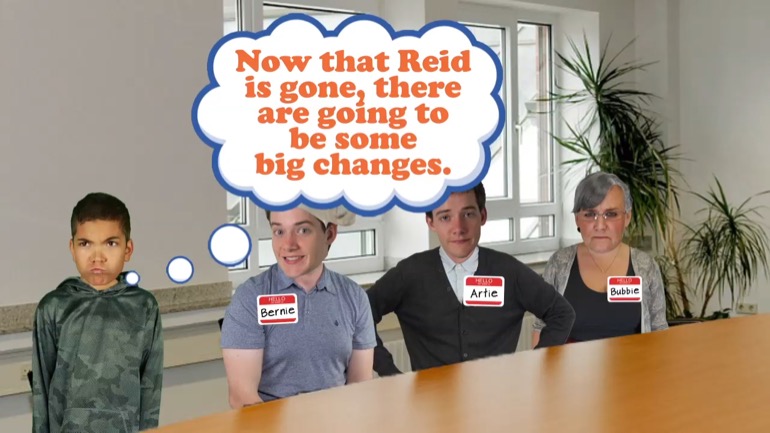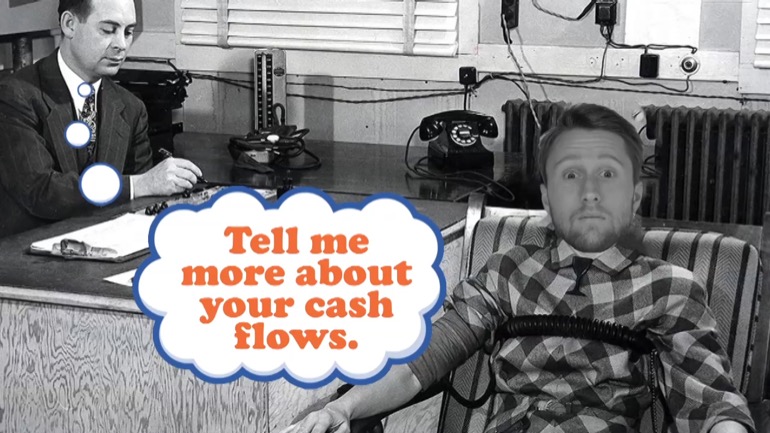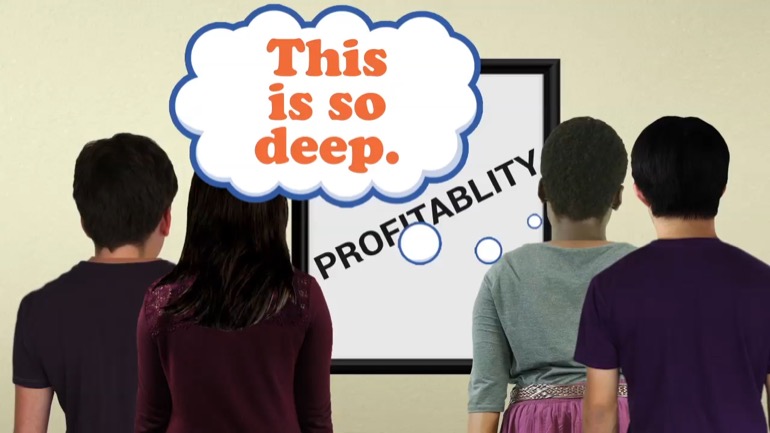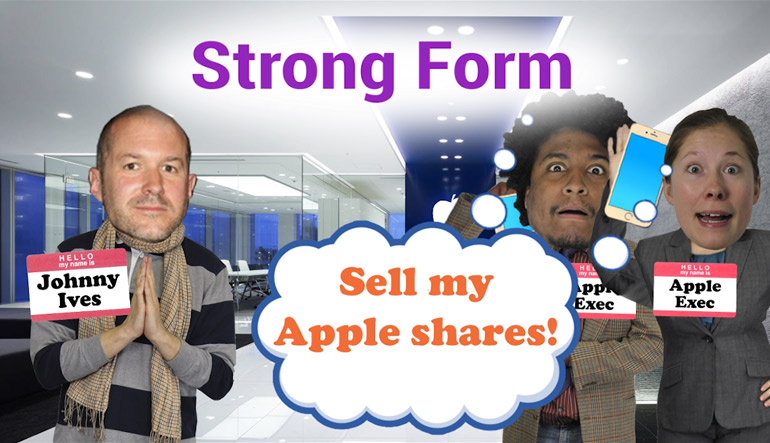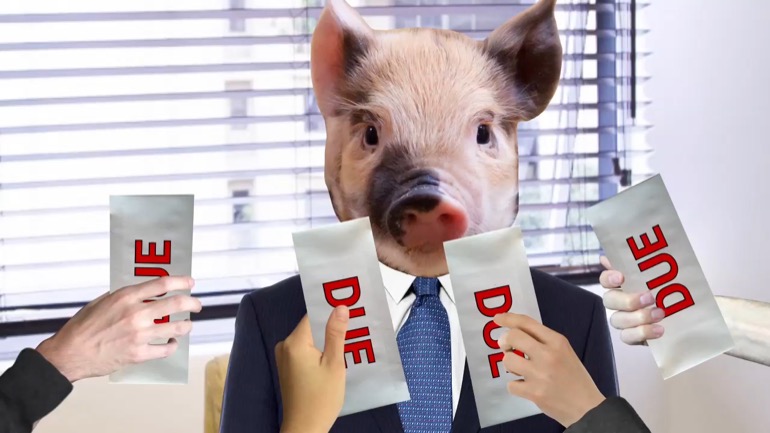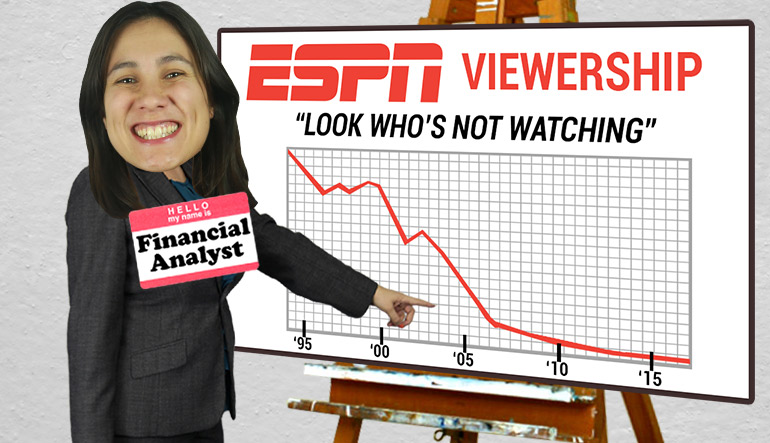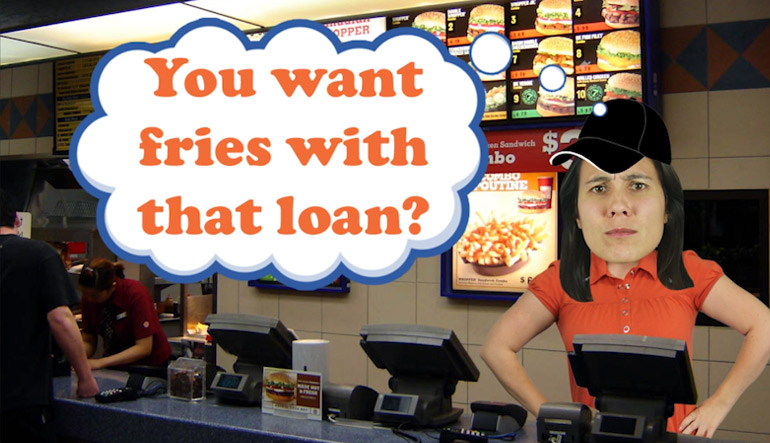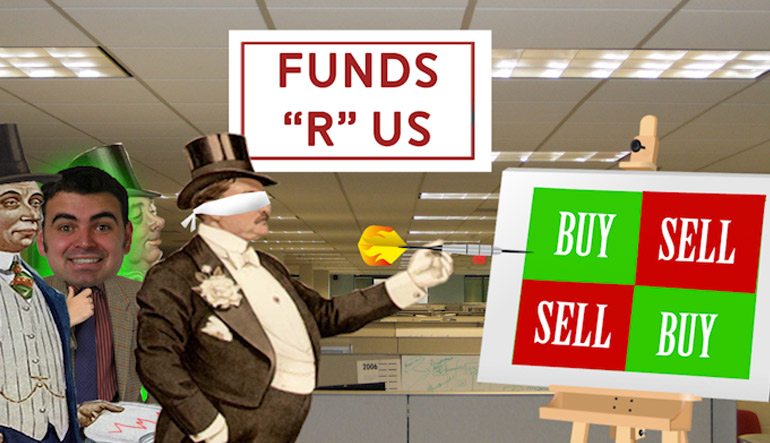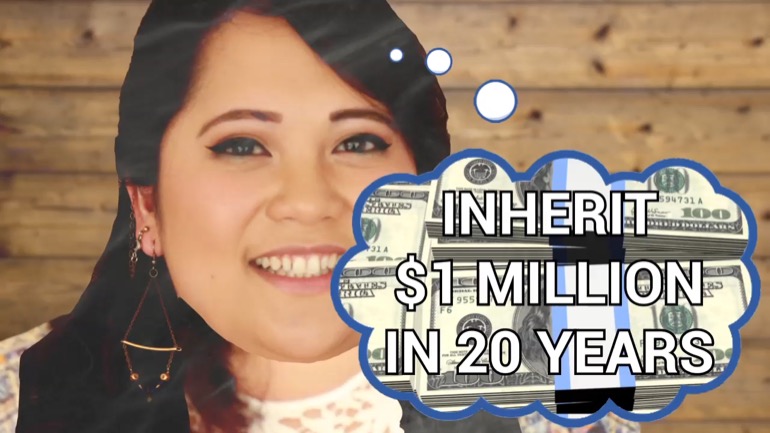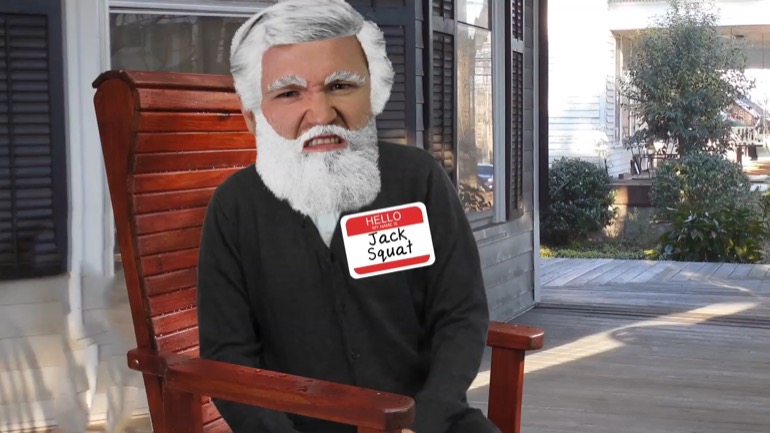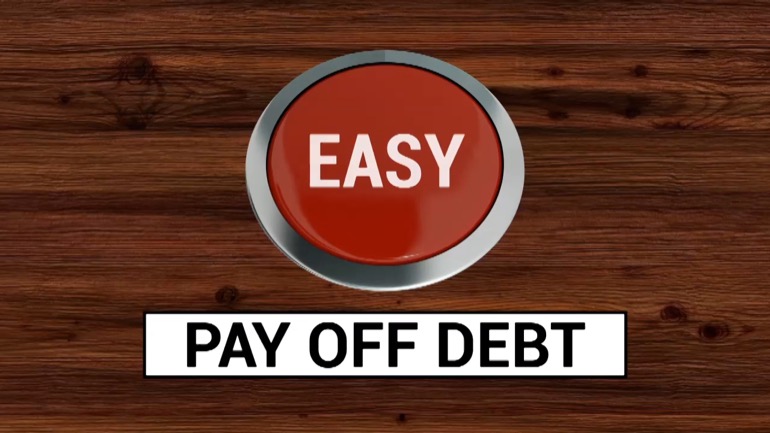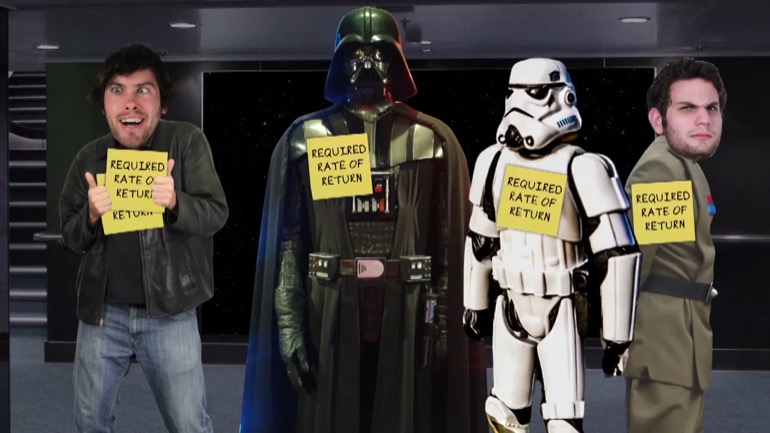ShmoopTube
Where Monty Python meets your 10th grade teacher.
Search Thousands of Shmoop Videos
Principles of Finance Videos 166 videos
How is a company... born? Can it be performed via C-section? Is there a midwife present? Do its parents get in a fight over what to name it? In thi...
Company Formation, Structure, and Inception: Unit Intro. Sorry, Leo DiCaprio fans—we're not going to be breaking down the plot of Inception. We'r...
Okay, so you want to be a company financial manager. It's basically up to you to make money for the shareholders. It would also be swell if you mad...
Principles of Finance: Unit 3, Simplified Lemonade Stand 17 Views
Share It!
Description:
Let's dive into an income statement and examine its revenues, its expenses, and its various other ins and outs. Hopefully more ins than outs.
Transcript
- 00:00
principles of finance. a la shmoop. simplified Lemonade Stand. alright people
- 00:07
time to simplify simplify and yet Thoreau still has nothing on us. all [old man in the woods]
- 00:11
right well let's go back to our little lemonade stand and drill into some of
- 00:14
the more difficult elements of the income statement. the income statement
- 00:19
right here this thing read through it and you're skimming reading are you
Full Transcript
- 00:22
paying attention good. okay so let's think about when our big question here
- 00:26
is easy. when are revenues revenues? all right. that's also from Jeopardy. well
- 00:31
when a customer stands at your stand and pays you the dollar for their lemonade
- 00:35
and they drink it they say boy howdy that was good. and they walk away well
- 00:39
that constitutes a clean sale. we're gonna assume that thirty minutes later [kid sells lemonade]
- 00:43
they aren't throwing up from food poisoning and then coming back to sue
- 00:47
you. and even if they did while the cost of defending yourself wouldn't be a
- 00:50
revenue item on the income statement, it would be in a new category you just
- 00:55
realized you need legal and insurance or something like that.
- 00:58
so clean sale makes for clean revenues. well when are they dirty?
- 01:01
well revenues are dirty when a sale may or may not happen. that is there isn't
- 01:06
certainty of revenues, but when is there really certainty? well you could posit
- 01:11
that when cash goes into your Bank of America coffers, that's a sale. but what
- 01:15
if there's a three-month money-back guarantee attached to it? don't you have
- 01:18
to reserve some amount of money for the number of people who will exercise their
- 01:23
right to that money-back guarantee? how do you do that ?well in the beginning
- 01:27
you really have no history so you essentially make all revenues deferred.
- 01:32
and yep that's a new category. and as soon as the 90 days are up then you can [deferred revenue defined]
- 01:36
call them revenues. but over time if you have one percent of your revenues pretty
- 01:39
steadily being redeemed for the money-back guarantee, well then you can
- 01:42
start to reserve way less than the hundred percent you started with. and
- 01:46
it's rational that in a given month if you took in a million dollars that you
- 01:50
reserve and at ten thousand dollars for that kind of guarantee. well why would
- 01:54
you have started with a hundred percent reserves? one word yeah GAAP we whispered.
- 01:58
it art we'll say it loud. loud GAAP. and not the Levi's store people. the religion
- 02:02
of GAAP tells you that you must do the most rationally conservative thing that
- 02:07
you can do when accounting for money. and since you were just starting a business
- 02:11
you had no idea if the product was going end up being a defective clunker or [cash counted on many screens]
- 02:16
something really good, where 1% or less was ever redeemed. okay so that's
- 02:20
deferred revenues. and what about the credit card issue here? well we noted
- 02:24
earlier that credit card companies take a fair chunk out of your purchases. in
- 02:29
this made-up example of nothingness, let's say the credit card companies take
- 02:33
3 percent of sales. well on a million dollars, you pay them 30 grand. and you
- 02:37
keep $970,000. would you book revenues as a million dollars or is
- 02:43
970,000? answer 1 million. why ?well this isn't the most conservative so why
- 02:49
wouldn't you claim revenues at just 970,000 instead of goosing them up to be
- 02:55
a million. because credit cards are a very common way of doing business. in
- 02:59
theory everyone in your industry uses them and it's fair to assume that a very
- 03:04
large part of say a bicycle shops revenues will be paid via credit card. [graphic showing many pay with credit card]
- 03:08
when standard practice dictates a certain set of costs that are common to
- 03:12
an industry you adopt the most common methods of accounting in that industry.
- 03:17
all right now here's another twist. what if revenues are suspect or iffy or
- 03:21
uncertain of being paid. imagine your rep providing lemonade to the Super bowl. well
- 03:26
if there's a risk that you won't in fact be paid for your million cups of
- 03:31
lemonade you know from those deadbeats at the NFL. should you still book the
- 03:35
million dollars promised you as revenues? no of course not. you do still suffer the
- 03:40
expenses of having had to produce and deliver the lemonade however and you are
- 03:44
still liable if people get sick from it even if you never get paid by the NFL [lemonade in a glass]
- 03:50
people. well maybe think about that when you negotiate your contract, ie that they
- 03:54
pay you X percent up front so that if they renege on the deal you've at least
- 03:59
collected enough cash upfront to cover your cups and a little bit more. well the
- 04:03
hard part here is figuring out what to deduct for risk of non-payment. is the
- 04:08
NFL going bankrupt anytime soon? well not bloody likely. do they have a history of
- 04:13
not paying their vendor bills? no will they claim non performance on your part
- 04:18
ie that you didn't actually deliver the million cups of lemonade? also not likely.
- 04:23
it had a lot of that on Camera now. well do they have a history of
- 04:25
sub charging you, that is claiming that the cups you brought left a mess on the
- 04:31
floor and now they had to clean up the sticky mess and deal with the ants, so [trash on the ground]
- 04:35
instead of paying you the million bucks you thought they would now they're gonna
- 04:39
deduct 50 grand for cleanup and just pay you 950 K .all right well all these
- 04:43
factors play into how you calculate revenues. no hard and fast numbers are
- 04:48
embedded here you just need to demonstrate that you thought about this
- 04:51
rationally. why would someone want to state revenues as being really low and
- 04:56
the regulator is not be okay with that? because you're being super conservative
- 04:59
here right? well revenues being stated as overly conservatively low have a big
- 05:04
effect on one particular line item on the income statement all else being held
- 05:08
equal. want to guess which one rhymes with sh max's. yeah if you had
- 05:12
expenses of 400 grand in revenues a million dollars long you'd have pre-tax
- 05:16
profits of 600 grand and pay your 30 percent tax or whatever the number is in [equation]
- 05:20
your state, and country and so on of $180,000 thirty percent on a 600 yeah
- 05:24
that's how we got there, to net 420 grand in earnings. but if you somehow came up
- 05:29
with a rental guarantee on the lemonade with the notion being that then well
- 05:34
nobody really buys lemonade they rent it, right? and then you were somehow able to
- 05:39
defer those revenues to be recognized some years later well then maybe you can
- 05:44
show only 500 grand of revenues instead of that million this year. you still have
- 05:48
the four hundred thousand bucks in expenses, nothing else changed here ,not
- 05:52
even sales commissions to your reps, so you'd show just a hundred grand in
- 05:55
profits, pay your 30 percent tax and you'll have paid 30 grand in taxes
- 05:59
instead of a hundred 80 grand you paid before .key idea here you still collected [equation]
- 06:04
the full million dollars in revenues it's just sitting in your bank account.
- 06:07
you're just not recognizing it yet as clean revenues .yes it's accounting
- 06:13
chicanery book cooking and other falsities when
- 06:16
you go to these fake extents to be conservative. and if you do find yourself
- 06:20
being encouraged by your CEO or whoever to do your accounting like this either
- 06:25
consult glassdoor.com fast or think about whether or not your body looks
- 06:30
good doing stripes. yeah they're slimming. [boy behind bars in black and white stripes]
Related Videos
How are risk and reward related? Take more risk, expect more reward. A lottery ticket might be worth a billion dollars, but if the odds are one in...
How do credit card companies work? Credit card companies are, in a way, lenders. They give consumers a rectangular piece of plastic that allows the...
How do some accountants “cook the books”? Cooking the books refers to accountants making company’s financials look much better than they are....
How do you become incorporated? Go to Legal Zoom. Pay $150, file with the state of Delaware or whoever each year. Pay another $150. Most file as LL...
How do you get a startup funded? Depends if we're talking about a tech startup, or a non-tech startup. If you've got a promising, budding tech comp...






